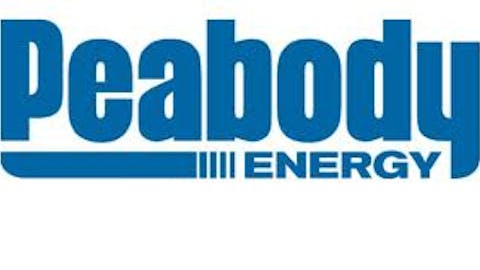Investing in coal is a frightening proposition. The news coming out of the industry is terrible, most of the companies are expected to post net losses this year, and the sector’s shares are down roughly 46% since early 2012. But, even with the negatives, some positive factors could make buying coal stocks a consideration. Such a purchase, though not really an investment, might be an attractive measured speculation.

Plenty of bad news
The coal industry has been beset by bad news. President Obama’s plan to cut power plant emissions by reducing the burning of coal is just an example. Though it might take years for his changes to go into effect, the trend seems clear. Demand for thermal coal, that used to make electricity, is in secular decline. The ease of conversion to cheap and abundant natural gas reinforces that trend. In 2012, a roughly 31% decrease in natural gas price helped coal’s share of U.S. electricity production drop to 37% from 42% a year earlier.
Lackluster growth in steel production has also hurt coal, a key steel making component. Production in Asia grew at a modest 3% in 2012; a sharp drop from historic rates and worldwide steel production rose a skimpier 1% due to reduced production in Europe. The softness in international steel markets, in an ample supply situation, led to a serious price decline for seaborne metallurgical coal. In the first quarter of 2013, pricing dropped about 30% compared to the year-ago quarter.
Some hopeful signs
As bad as the news is, some hopeful signs have emerged.
The three U.S. based companies I follow, Peabody Energy Corporation (NYSE:BTU), Arch Coal Inc (NYSE:ACI), and Alpha Natural Resources, Inc. (NYSE:ANR), have all made efforts to rein in oversupply.
Peabody Energy Corporation (NYSE:BTU) is limiting its 2013 capital spending to mostly maintenance on existing mines. Arch Coal Inc (NYSE:ACI) has closed and idled production at various locations and took steps to control other costs. Alpha Natural Resources, Inc. (NYSE:ANR) has suspended certain mining operations, which is expected to reduce 2013 production by approximately 16% or 17 million tons compared to 2012 levels.
Global coal market conditions also improved during the first quarter. There was higher coal consumption in the U.S. and a sequential quarterly increase in international seaborne metallurgical coal price heading into the second quarter.
The most important positive factor for the industry was the quarter’s 12% increase in U.S. coal use. This jump was due to higher electric power generation, driven by a colder winter plus an increase in the relative cost of natural gas. Although increased demand didn’t help the coal industry’s first-quarter results as utility customers drew down on flush inventories, it should provide upcoming support. A reduction in coal stockpiles might foreshadow increased sales and a reduced supply could imply better pricing. This combination might help the industry post a surprisingly good future quarter or two.
Picking the dog with the fewest fleas
To be frank, none of these coal companies should be viewed as a safe investment. The goal is probably to find a reasonably attractive choice, based on price and safety, which could benefit from a short-term improvement in industry fundamentals.
Peabody Energy Corporation (NYSE:BTU) is the world’s largest private-sector coal company with interests in the U.S. and Australia. The company reported first quarter 2013 revenues of $1.8 billion and adjusted earnings before interest, taxes, depreciation, depletion and amortization (“EBITDA”) of $280.1 million. First-quarter revenues declined 14% on reduced U.S. shipments and lower Australian pricing. U.S. revenues of $976.8 million decreased 12% from the prior year, driven by a 6.0 million ton decline in shipments.
Peabody Energy Corporation (NYSE:BTU) shares look fairly priced based on analyst’s dismal 2013 expectations. Using a cash earnings times a capitalization multiplier valuation, reasonable business value looks around $12 to $13 a share at a slightly higher than average industry multiple range of 8 to 9 based on estimated revenues around $7.7 billion and average cash earnings of $396 million.
Arch Coal Inc (NYSE:ACI) is another large coal producer, selling roughly 14% of the U.S. coal supply. It reported a net loss of $70 million in the first quarter of 2013, versus a net loss of $8 million in 2012. Revenues totaled $826 million, down about $213 million from the prior year on lower sales volumes. EBITDA was $84 million compared to $180 million a year ago.
Arch Coal Inc (NYSE:ACI) shares may look cheap, but they could be a risky proposition. Unlike its peers, the company has not yet shown consistent free operating cash flow and it also has a very large debt burden. Based on revenues of $3.6 billion and possible cash earnings of $133 million, Arch Coal Inc (NYSE:ACI)’s fair business value looks around $5 per share at an average 8x multiple.
Alpha Natural Resources, Inc. (NYSE:ANR) is the third-largest publicly-traded U.S. coal producer, as measured by its 2012 sales of $7.0 billion. The company reported a first quarter 2013 adjusted net loss of $104 million compared with an adjusted net loss of $58 million in 2012. Adjusted EBITDA was $117 million compared to $210 million and sales were $1.3 billion versus $1.9 billion last year. The 31% drop in revenues was primarily due to lower average pricing and lower thermal coal volumes.
Alpha Natural Resources, Inc. (NYSE:ANR)’s valuation might be attractive. Anticipating sales of $5.3 billion and cash earnings of $260 million places the company’s reasonable business value around $9 a share, given the industry’s average multiple of 8.
Conclusion
The coal industry doesn’t have a whole lot going for it. But increased demand from utility customers and reduced coal supplies could set the companies up for some surprisingly decent results. Given the almost universal gloom surrounding the sector, any unexpected good news may benefit shareholders. Although I would not consider them a true investment, coal stocks might offer a reasonable speculative play.
Bob Chandler has a long position in Alpha Natural Resources. The Motley Fool has no position in any of the stocks mentioned. Bob is a member of The Motley Fool Blog Network — entries represent the personal opinion of the blogger and are not formally edited.
The article Getting Down and Dirty in Coal originally appeared on Fool.com is written by Bob Chandler.
Copyright © 1995 – 2013 The Motley Fool, LLC. All rights reserved. The Motley Fool has a disclosure policy.



